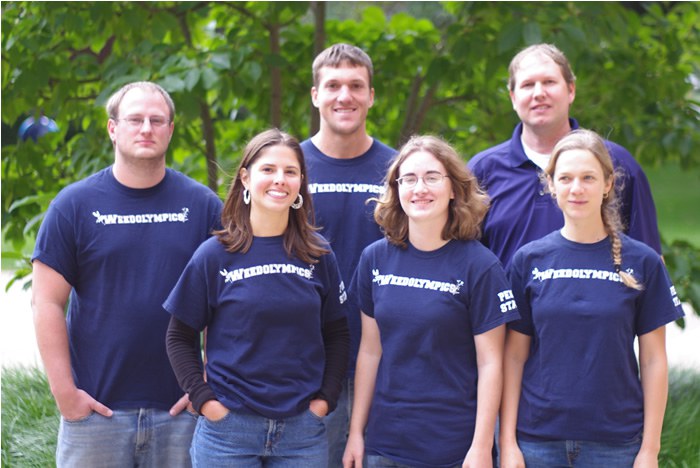The 2011 Weed Science Contest was held on July 26 in Knoxville at the University of Tennessee. It was a very unique experience since it was a national contest between the four regional weed science societies: Northeastern (NEWSS), North Central, Southern, and Western. It was dubbed the "WeedOlympics." Students had an opportunity to win regional and national awards. This was the first time for this national format, so it provided students from each society an opportunity to experience different agricultural scenarios and to interact with one another.
The NEWSS was well represented with six undergraduate teams (Cornell, Guelph, and Virginia Tech) and nine graduate teams (Cornell, Guelph, North Carolina State, Penn State, and Virginia Tech). Other undergraduate teams participating were: New Mexico State and Ohio State; and graduate teams were: Washington State, Oklahoma State, Kansas State, University of Georgia, University of Florida, University of Arkansas, Auburn University, University of Nebraska, Purdue, Ohio State, University of Missouri, and Michigan State. Overall there were 34 undergraduate contestants and 97 graduate students.
Penn State's team included five students this year (see picture), including: Ben Crockett, Clair Keene, Kelly Patches, Elina Snyder, and Hunter Stambaugh. Dwight Lingenfelter again coached the team in preparation for this practical and exciting challenge.
Students participated in four contest segments including: 1) weed identification; 2) sprayer application technology; 3) diagnosis and identification of herbicides by symptoms; and 4) problem solving and recommendations in a field setting (role-play event). Of all the events, each year the students really appreciate the role-play event. It gives them a chance to test their knowledge and skills of weed science and crop management in general. This year especially, they were challenged with some crop situations they were typically not familiar with such as, cotton, sunflowers, switchgrass, organic vegetables, aquatic areas, strawberries, orchards, and timberlands. The goal of the contest is to include "real-world" scenarios for experiential learning with a twist of fun. The weed science contest is open to graduate and undergraduate students interested in weed management in agronomy, horticulture, turf, and natural areas.
Results: In the overall team results, Penn State ranked 15th out of 25 graduate teams. Despite the fact that our team or individuals did not place in top tier, the students learned a lot and gained some valuable experiences.
As more students desire increased hands-on, experiential learning, events like this will hopefully continue to meet the demands. Most of the students who have been involved in the contest find it, not only challenging and humbling, but also very rewarding and enjoyable. Regardless of the outcome, it provides a lot of helpful experiences for future use and allows students to interact with other colleagues in the weed science profession. Students use the practical knowledge gained to, not only assist them during the contest, but also, apply it to actual crop production/management situations upon graduation in graduate school or gainful employment endeavors. Experiences such as the weed science contest greatly complement the in-class educational process.


